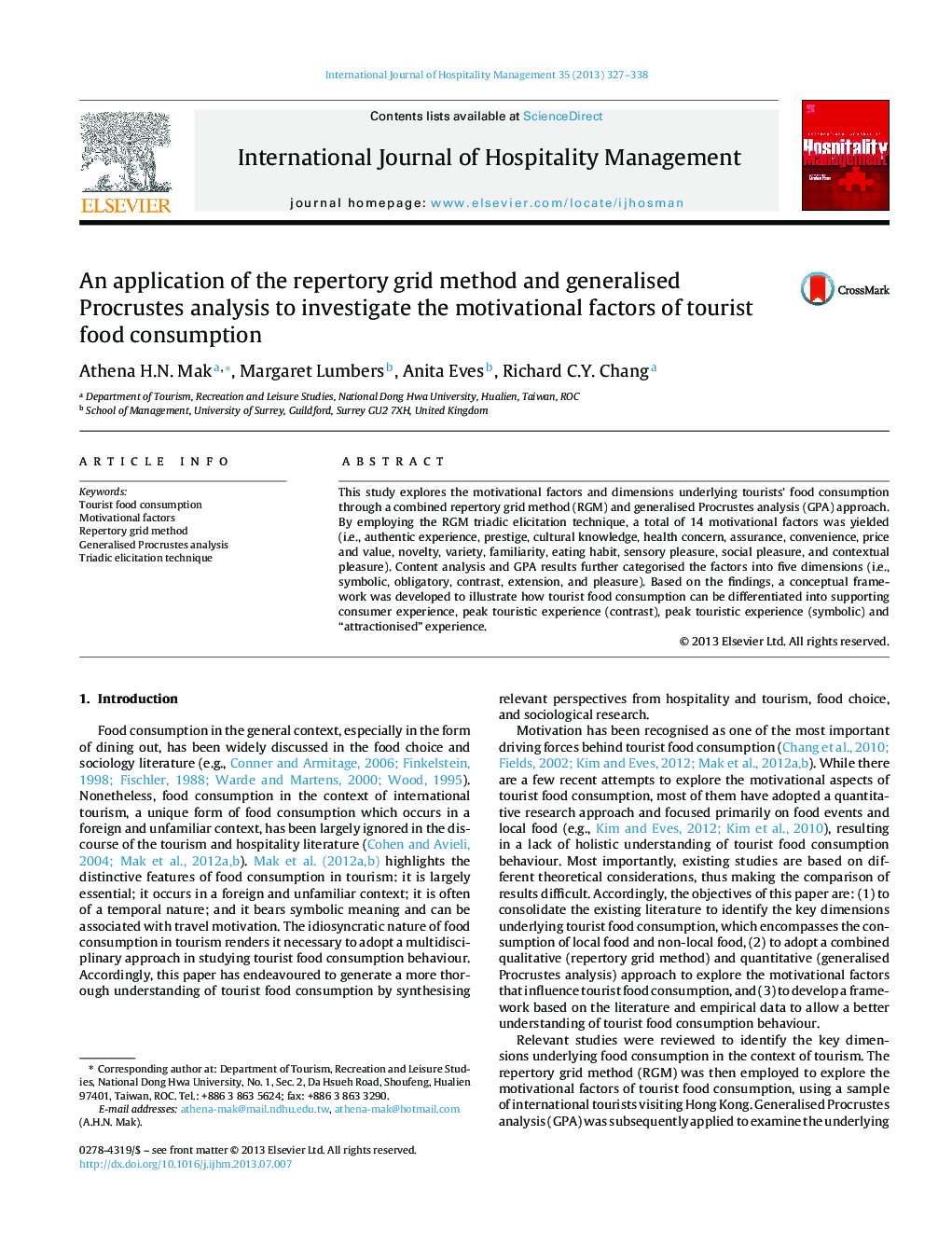| کد مقاله | کد نشریه | سال انتشار | مقاله انگلیسی | نسخه تمام متن |
|---|---|---|---|---|
| 1009855 | 1482502 | 2013 | 12 صفحه PDF | دانلود رایگان |

• Repertory grid method and generalised Procrustes analysis are adopted in the study.
• Repertory grid triadic elicitation technique has yielded 14 motivational factors.
• Content analysis and GPA results have further revealed 5 motivational dimensions.
• A conceptual framework is proposed based on the empirical findings.
• Food consumption in tourism can be conceptually differentiated into 4 experiences.
This study explores the motivational factors and dimensions underlying tourists’ food consumption through a combined repertory grid method (RGM) and generalised Procrustes analysis (GPA) approach. By employing the RGM triadic elicitation technique, a total of 14 motivational factors was yielded (i.e., authentic experience, prestige, cultural knowledge, health concern, assurance, convenience, price and value, novelty, variety, familiarity, eating habit, sensory pleasure, social pleasure, and contextual pleasure). Content analysis and GPA results further categorised the factors into five dimensions (i.e., symbolic, obligatory, contrast, extension, and pleasure). Based on the findings, a conceptual framework was developed to illustrate how tourist food consumption can be differentiated into supporting consumer experience, peak touristic experience (contrast), peak touristic experience (symbolic) and “attractionised” experience.
Journal: International Journal of Hospitality Management - Volume 35, December 2013, Pages 327–338